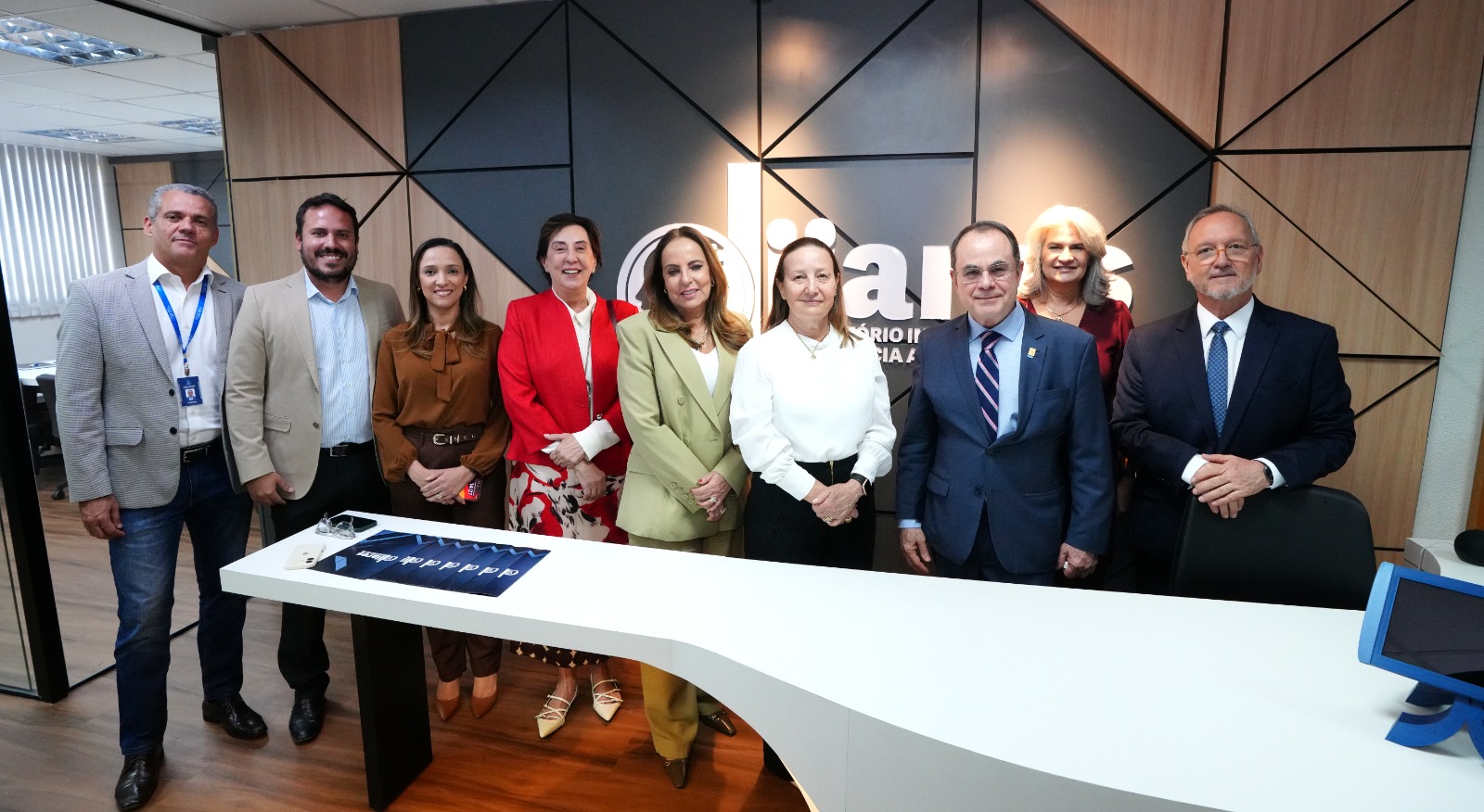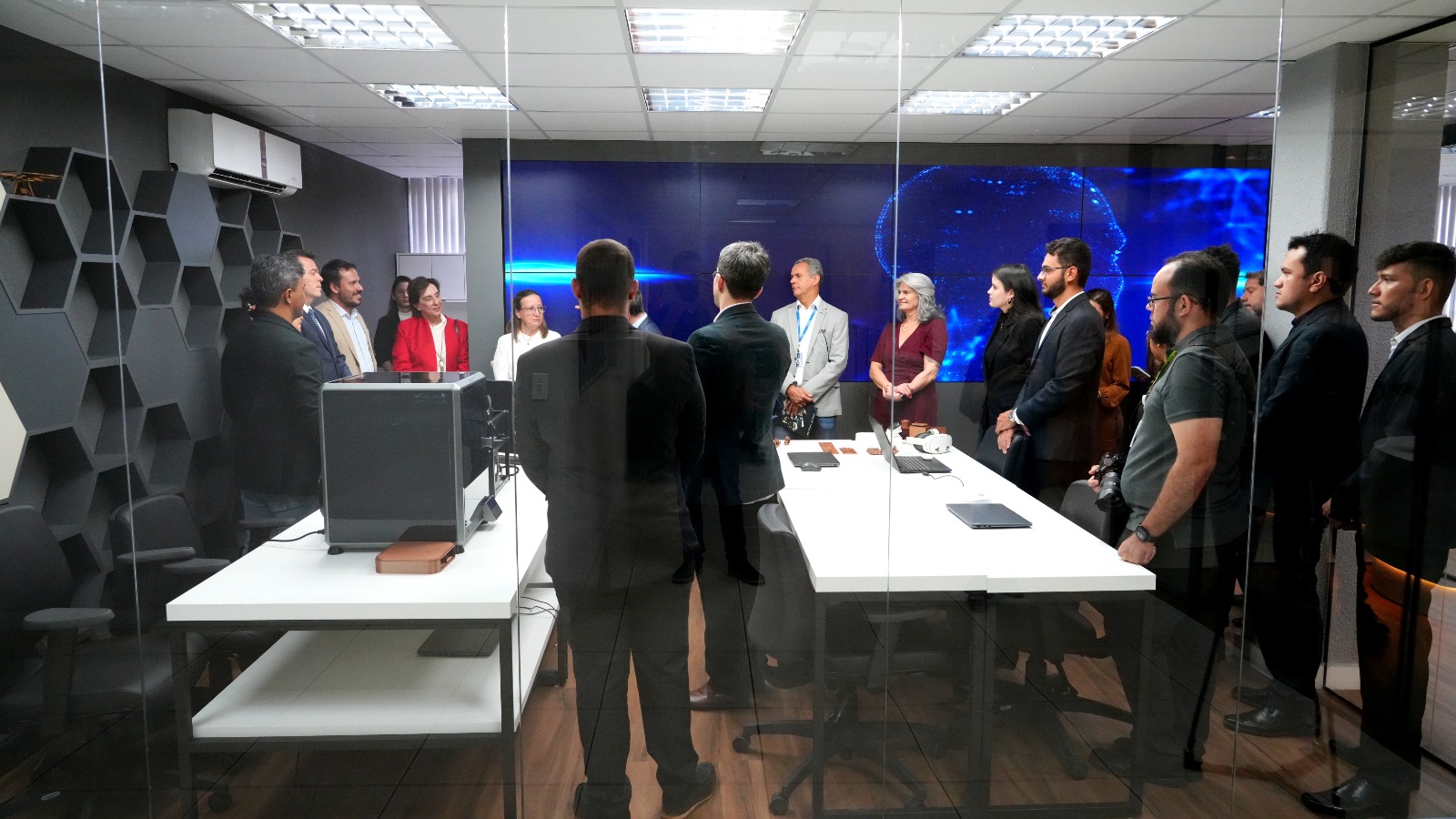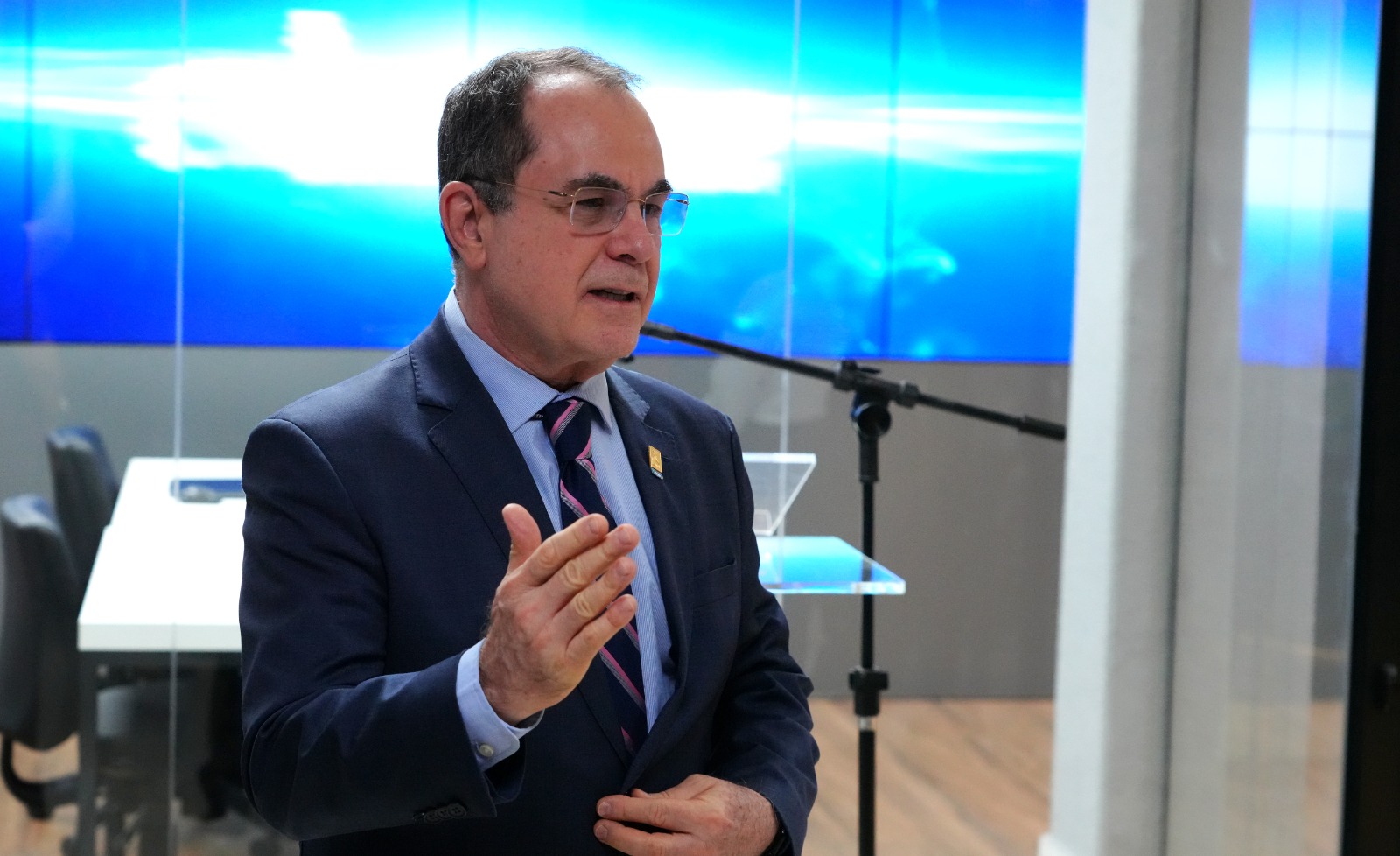
In a visit made on the afternoon of Friday (September 5th), the president of the Court of Justice of the State of Tocantins (TJTO), Justice Maysa Vendramini Rosal, accompanied by judges, directors and technical teams, met closely the Interdisciplinary Laboratory of Artificial Intelligence of the Superior School of the Judges of the State of Tocantins (LIIARES). The newly opened space places Esmat at the forefront of applied research, technological innovation and continuous training in digital justice.
“Technology is a path without turning back, and the Judiciary of the state of Tocantins will go forward," said the president. "Our Judiciary is already quite advanced, and this work tool (AI) will make us evolve even more," said the president of the TJTO.
The Justice emphasized, at the opportunity, the support of the Federal University of the state of Tocantins (UFT) and Esmat in strengthening innovation.
Knowledge and digital transformation

During the visit, the delegation got to know the resources of the space and the projects under development by thirteen researchers of doctorate, master’s and undergraduate degree of UFT, guided by professors and technicians who integrate the partner academic network.
On the occasion, the president congratulated the general director of Esmat, Justice Marco Villas Boas, who also chairs the Permanent College of Directors of State Schools of the Magistracy (Copedem), for the initiative, as well as all the team involved in the project, and made the Presidency of the TJTO available.
Pioneering And Strategic Partnerships
Justice Marco Villas Boas highlighted the support of the TJTO and the partnership with UFT. "This collaboration offers the opportunity to improve our staff in the area of information technology, as well as other relevant activities," emphasized the CEO of Esmat.
According to him, the creation of a space dedicated to work, development and research with high-performance equipment was an obvious need.

“The objective is to provide an adequate and technologically equipped environment for the students of the master’s and doctoral courses in Governance and Digital Transformation, as well as for the faculty and the civil servers of the area of Information Technology of the Court, in addition to all those interested in IT research and development.”
Ai Applied To Impact Lives And Processes
Still according to the justice, the Laboratory will allow the development of studies and advanced and applied research in Generative Artificial Intelligence, with the purpose of improving the institution and benefit society.
“In addition, the Laboratory will have the practical function of offering products that benefit the Institution, society and other partner institutions that participate in our education and research activities”.
The general director also highlighted long-standing scientific cooperation with USP (University of the state of São Paulo) and research aimed at raising standards of security, transparency, auditability and explainability of AI solutions in the Justice ecosystem.
For the Doctor Professor Humberto Xavier de Araújo, scientific coordinator of LIIARES, "Esmat will be reference and mirror to other institutions. This is a dream that comes true and it was dreamed here", he summarized by highlighting that the Laboratory integrates AI, internet of things, electronics, robotics and additive manufacturing, focusing on technological inclusion and social impact.
Where the future of justice begins
LIIARES, inaugurated on Thursday (September 4th), is located on the second floor of Esmat and it was born with a practical vocation: to transform science into better services for the people of the state of Tocantins. The Laboratory is the result of the commitment of the management of the School, led by Justice Marco Villas Boas, and a strategic partnership among Esmat, TJTO, UFT and the University of the state of São Paulo (USP), being the first institutionalized Laboratory of this type within a Judicial School in the country.
Institutional presences
The visit was attended, in addition to the president, with the presence of the general chief of Justice, Justice Pedro Nelson de Miranda Coutinho; Justice Ângela Prudente; of the 1st Deputy Director of Esmat, Justice Angela Haonat; of the General Director of the TJTO, Francisco Cardoso; the director of the Directorate of Information Technology (DTINF), Alice Carla Setubal; and the head of the Information Systems Development Division, Ângelo Stacciarino Seraphin.




_thumbnail_thumbnail.jpeg)
_thumbnail_thumbnail.jpeg)
_thumbnail_thumbnail.jpeg)
_thumbnail_thumbnail.jpeg)
_thumbnail_thumbnail.jpeg)
_thumbnail_thumbnail.jpeg)
_thumbnail_thumbnail.jpeg)
_thumbnail_thumbnail.jpeg)
_thumbnail.jpeg)
_thumbnail.jpeg)
_thumbnail.jpeg)
_thumbnail.jpeg)
_thumbnail.jpeg)
_thumbnail.jpeg)
_thumbnail.jpeg)
_thumbnail.jpeg)
